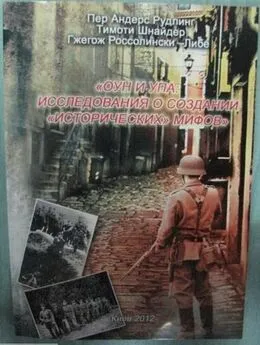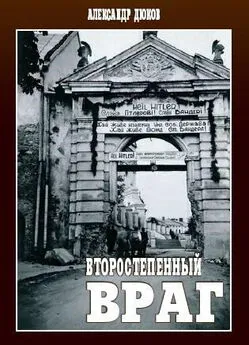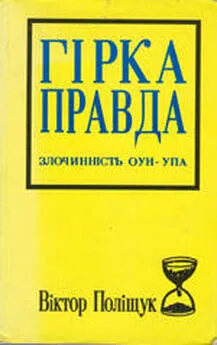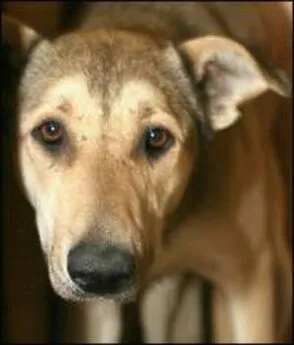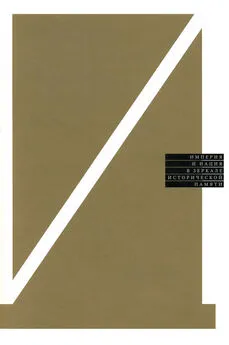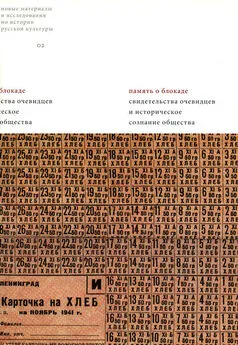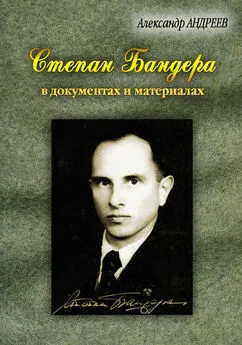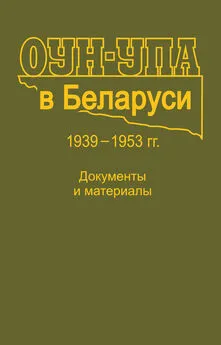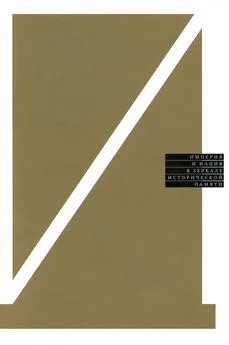Пер Рудлинг - ОУН и УПА: исследования о создании исторических мифов. Сборник статей
- Название:ОУН и УПА: исследования о создании исторических мифов. Сборник статей
- Автор:
- Жанр:
- Издательство:Золотые ворота
- Год:2012
- Город:Киев
- ISBN:978-966-2246-16-2
- Рейтинг:
- Избранное:Добавить в избранное
-
Отзывы:
-
Ваша оценка:
Пер Рудлинг - ОУН и УПА: исследования о создании исторических мифов. Сборник статей краткое содержание
Сборник статей «ОУН и УПА: исследования о создании «исторических» мифов» является вторым изданием в серии «Историческая правда», основанной Международным антифашистским фронтом в 2011 году.
В издании представлены исследования современных западных ученых — Пера Андерса Рудлинга, Тимоти Д. Шнайдера, Гжегожа Россолинского-Либе на тему украинского радикального национализма, фашизма, создания антиисторических мифов вокруг ОУН-УПА, преступлений против человечности, попыток героизации и реабилитации этих организаций и их членов.
Большинство исследований в Украине публикуются впервые.
ОУН и УПА: исследования о создании исторических мифов. Сборник статей - читать онлайн бесплатно полную версию (весь текст целиком)
Интервал:
Закладка:
222
In a discussion at the Fifth Annual Danyliw Research Seminar in Contemporary Ukrainian Studies, the Chair of Ukrainian Studies, the University of Ottawa, October 30, 2009, Potichnyj argued that Jews, killed by the UPA, were killed because they were communists. Interviewed by the Washington Post, he elaborated on this idea. “As for the killings of Jews and Poles, Potichnyj argues that no matter where guerillas fi ght for liberation, it’s a messy affair. The Poles provoked the Ukrainians, he said. ‘With respect to Jews,’ he said, ‘obviously, in the situation there must have taken place some killing of the Jews, although in 1943, when the UPA was quite strong, there were hardly no Jews left because the Germans had, unfortunately, killed them all off. But there were some remnants, and the remnants were either working with the Ukrainian underground or they were working with the Soviets.’ Those allied with the Red partisans were obviously enemies of the underground, he said.” John Pancake, “In Ukraine, movement to honor members of WWII underground sets off debate,” Washington Post, January 6, 2010: A7; John Paul Himka [Ivan-Pavlo Khymka], “Chy ukrains’ki studii povynni zakhyshzhaty spadshchynu OUN-UPA?” in Amar, Balyns’kyi, Hrytsak, Strasti za Banderoiu, 163.
223
“What is also indisputable is that many Jews served in the Soviet secret police during that period of Soviet rule in Western Ukraine. Naturally, Himka fails to mention the Jewish complicity which may have pointed to the motive of any number of oppressors. While being Jewish in and of itself, certainly, was not reason to be killed, being Jewish was not immunity from being attacked when you sided and fought with the enemy.” Askold S. Lozynskyj, “Rewriting history: An evidentary persepective,” KyivPost, February 16, 2010: http://www.kyivpost.com/news/opinion/op_ed/detail/59650/print/ (accessed February 22, 2010).
224
Volodymyr Serhiichuk, Nasha krov — na svoii zemli (Kyiv: Ukrains’ka vydavnycha spilka, 2000), 56–57; Volodymyr Serhiichuk, Trahediia Volhyni: Prychynyi perebih pol’s’ko-ukrains’koho konfl iktu v roky druhoi svitovoi viiny (Kyiv: Ukrains’ka vydavnycha spilka, 2003). For a discussion on Serhiichuk, see Marples, Heroes and Villains, 232–233, 236–237.
225
See the interview with Volodymyr V’’iatrovych, to which we will return to later. Masha Mishchenko, “Pratsivnyk SBU: My izdyly v Izrail’ pobachaty dos’e proty Shukhevycha — a ioho prosto ne isnue,” UNIAN, March 25, 2008: http://unian.net/news/print.php?id=242913 (accessed April 8, 2008).
226
For instance, on November 10, 2010 during the trial in Kyiv regarding the legality of Yushchenko’s collective designation of the OUN and the UPA as Heroes of Ukraine, Petro Mykytovych Perepust, representing the Sumy chapter of the far-right Ukrainian National Assembly-Ukrainian National Self Defense (UNA-UNSO), justifi ed the “murder, dismemberment, and slaughter [i ubyvaty, i pyliaty, i rizati] — that is done all across the world when one people fi ght for their independence, they kill other people.” Legal argument, case 2a-6732/10, “Za Pozovom Vitrenko Natalii Mykhailivni do Prezydenta Ukrainy shchodo vyznannia nezakonnym Ukazu Prezydenta Ukrainy vid 28 sichnia 2010 roku No. 75/2010 ‘Pro vshanuvannia uzhastnykiv borot’by za nezalezhnist’ Ukrainy u XX stolitti,” Okruzhnyi Administratvnyi sud mista Kyeva, November 10, 2010. Press release, November 12, 2010. The proceedings are also available online: http://www.youtube.com/watch?v=znQjFCNCAXg (accessed November 12, 2010). Thanks to Krzysztof Janiga for this material.
227
In an interview, the 87-year-old Volhynian UPA veteran Ivan Hnatevych Kisliuk (b. 1923) presses the book Armiia bez Derzhavy, by the founder of the original UPA, into my hands, and told me to open to page 253. It reads: “In the end of July 1943 the General Staff of the UNRA issued an appeal to the Ukrainian people, in which it protested against all those measures, which were condemned as the disreputable acts of blinded totalitarians, and emphasized that the full responsibility for the crimes falls upon the leader of the OUN Bandera, Mr. Mykola Lebed’- Ruban.” “See, Ruban, Jew! [zhyd!],” Mr. Kisliuk said, pointing at Lebed’s Ashkenazi-sounding nom de guerre, which to him proved Jewish responsibility for the Volhyn massacres. Bul’ba-Borovets’, Armiia bez derzhavy, 253. Personal interview, Kyiv-Troishchina, Ukraine, September 23, 2010.
228
Weiner, Making Sense of War, 161–172.
229
V. R. Nakhmanovych, “Bukovyns’kyi Kurin’ i masovi rozsteli evreiv Kyiva voseni 1941 r.,” Ukrains’kyi istorychnyi zhurnal no. 3 (474), (May — June 2007): 90.
230
John-Paul Himka, “The Reception of the Holocaust.”
231
Himka, “War Criminality”; idem, “Central European Diaspora”; Glenn Sharfman, “The Quest for Justice: The Reaction of the Ukrainian-American Community to the John Demjanjuk Trials,” Journal of Genocide Research 2, no. 1 (2000): 65–87.
232
Petro J. Potichnyj was one of the few exceptions among the pronationalist scholars. He reached out to the Jewish community, aiming at a dialogue. Howard Aster and Peter Potichnyj, Jewish-Ukrainian Relations: Two Solitudes (Oakville, ON: Mosaic Press, 1983); idem, eds., Ukrainian-Jewish Relations in Historical Perspective (Edmonton: CIUS and University of Alberta, 1990).
233
Berkhoff and Carynnyk, “The Organization of Ukrainian Nationalists,” 149, 151, 152, citing Mykola Lebed’, “Orhanizatsiia protynimets’koho opouru OUN, 1941–1943 rokiv,” Suchasnist’, no. 1–2 (January — February 1983): 154.
234
Berkhoff and Carynnyk, “The Organization of Ukrainian Nationalists,” 151, citing Wolodymyr Kosyk, “Problems of the History of OUN and UPA,” Ukrainian Review 40 (Spring 1993): 26–27.
235
Petro J. Potichnyj, in Yevhen’ Shtendera and Petro J. Potichnyj, eds., Litopys UPA, vol. 17, English-Language Publications of the Ukranian Underground (Toronto: Litopys UPA, 1988), 140.
236
Taras Hunczak, “Between Two Leviathans: Ukraine during the Second World War,” in Bohdan Krawchenko, ed., Ukrainian Past, Ukrainian Present: Selected Papers from the Fourth World Congress for Soviet and East European Studies, Harrogate, 1990 (New York: St. Martin’s Press, 1993), 99.
237
Alexander Motyl, The Turn to the Right: The Ideological Origins and Development of Ukrainian Nationalism, 1919–1929 (New York: Columbia University Press, 1980), 166.
238
Alexander Motyl, “Ukraine, Europe, and Bandera,” Cicero Foundation Great Debate Paper, 10/05 (March 2010), 6: http://www.cicerofoundation.org/lectures/Alexander_J_Motyl_Ukraine_Europe_and_Bandera.pdf 6.
239
“It makes no sense to refer to Eastern Europeans, who were regarded by the Germans as subhumans, as ‘Nazi’ war criminals; they were not allowed to join the Nazi Party.” Myroslav Yurkevich, in “Discussion,” in Bozhyk, Ukraine in World War II, 158. Yet, National Socialism attracted many Eastern Europeans. In fact, Nazi Germany categorically banned any use of swastikas and other Nazi symbols in the émigré press, as well as prohibited the use of the term “National Socialist” in the names of any Slavic émigré organizations in Germany. Iury Hrybouski, “Belaruski rukh i Niamechchyna napiaredadni i u pachatku Druhoi sus’vetnai vainy,” ARCHE No. 5 (80), (May 2009): 152.
240
Hunczak, “Ukrainian-Jewish Relations,” 44–45. Similarly Mykola Riabchuk describes the OUN’s collaboration and anti-Semitism as “rather disputable” and relies on Motyl’s defi nition, in which collaborators are “individuals or groups who abandon their sovereign aspirations and serve another power’s goals.” Mykola Riabchuk, “Bandera’s Controversy and Ukraine’s Future,” citing Motyl, “Ukraine, Europe, and Bandera,” 6.
241
Daniel Ursprung, “Faschismus in Ostmittel-und Südosteuropa: Theorien, Ansätze, Fragestellungen,” in Der Einfl uss von Faschismus und Nationalsozialismus auf Minderheiten in Ostmittel- und Südosteuropa, ed. Mariana Hausleitner and Harald Roth (Munich: IKGS-Verlag, 2006), 22.
242
Alexander Motyl, “Is Putin’s Russia Fascist?” National Interest Online, December 3, 2007: http://nationalinterest.org/commentary/inside-track-is-putins-russia-fascist-1888.
243
Motyl, “Is Putin’s Russia Fascist?” and idem, “Surviving Russia’s Drift to Fascism,” Kyiv Post, January 17, 2008: http://www.kyivpost.com/opinion/oped/28182/ (both accessed January 15, 2011). Andreas Umland has taken Motyl to task over his use of this terminology. “If we would apply Motyl’s loose conceptualization of fascism to contemporary world history, we might fi nd so many ‘fascisms’ that the term would lose much of its heuristic and communicative value. Motyl’s comment is in so far unconstructive as he deprives researchers of Russian nationalism of an important analytic tool.” Andreas Umland, “Is Putin’s Russia Really “Fascist”? A Response to Alexander Motyl”: http://www.globalpolitician.com/print.asp?id=4341 (accessed January 15, 2011).
244
Motyl, “Ukraine, Europe, and Bandera,”14.
245
Wilfried Jilge, “Competition Among Victims? The Image of the Other in Post-Soviet Ukrainian Narratives on World War II,” in Heorhii Kas’ianov, ed., Obraz inshoho v susidnikh istoriakh: mifi, stereotypy, naukovi interpretatsii: Materialy mizhnarodnoi naukovi konferentsii, Kyiv, 15–16 hrudnia 2005 roku (Kyiv: NAN Ukrainy, Instytut istorii Ukrainy, 2008), 66.
246
This interpretation has found a receptive audience among some pro-OUN and UPA diaspora historians. See, for instance, Canadian Institute of Ukrainian Studies Director Zenon Kohut’s reply to John-Paul Himka “Re: Should Ukrainian Studies Defend the Heritage of OUN-UPA?” February 12, 2010. Dominique Arel’s Ukraine List, UKL 441 (Bandera-OUN and Famine Debates), February 16, 2010: http://www.ukrainianstudies.uottawa.ca/pdf/UKL441.pdf.
247
For instance, public intellectual Mykola Riabchuk sees no difficulty with the UPA cult, as long as the focus remains on their “ethical rather than ideological values” and as long as their ideology, ethnic cleansing or mass murders are not celebrated. “The UPA fi ghters. are praised fi rst of all for their patriotism and commitment to the national-liberation cause, for their idealism and dedication, for spiritual strength and self-secrifi ce.” Mykola Riabchuk, “Ukraine: Neither Heroes nor Villains: Review of Heroes and Villains: Creating National History in Contemporary Ukraine, by David Marples (Budapest: Central European Press, 2007),” Transitions Online, 6 February 2007.
248
See, for instance, the interview with Volodymyr V’’iatrovych, Masha Mishchenko, “Pratsivnyk SBU.”
249
See, for instance Peter J. Potichnyj and Yevhen Shtendera, eds., Political Thoughts of the Ukrainian Underground, 1943–1951 (Edmonton: CIUS and University of Alberta, 1986); Himka, “War Criminality,” 11. See Rudling, “Theory and Practice”; &ada, “Creative Forgetting;” Marples, Heroes and Villains, 298–301; Dietsch, Making Sense of Suffering, 147–176; Grzegorz Rossolinski-Liebe, “Der polnisch-ukrainische Historikerdiskurs über den polnisch-ukrainischen Konfl ikt, 1943–1947,” Jahrbücher für Geschichte Osteuropas 57, no. 1 (2009): 54–85.
Читать дальшеИнтервал:
Закладка:
